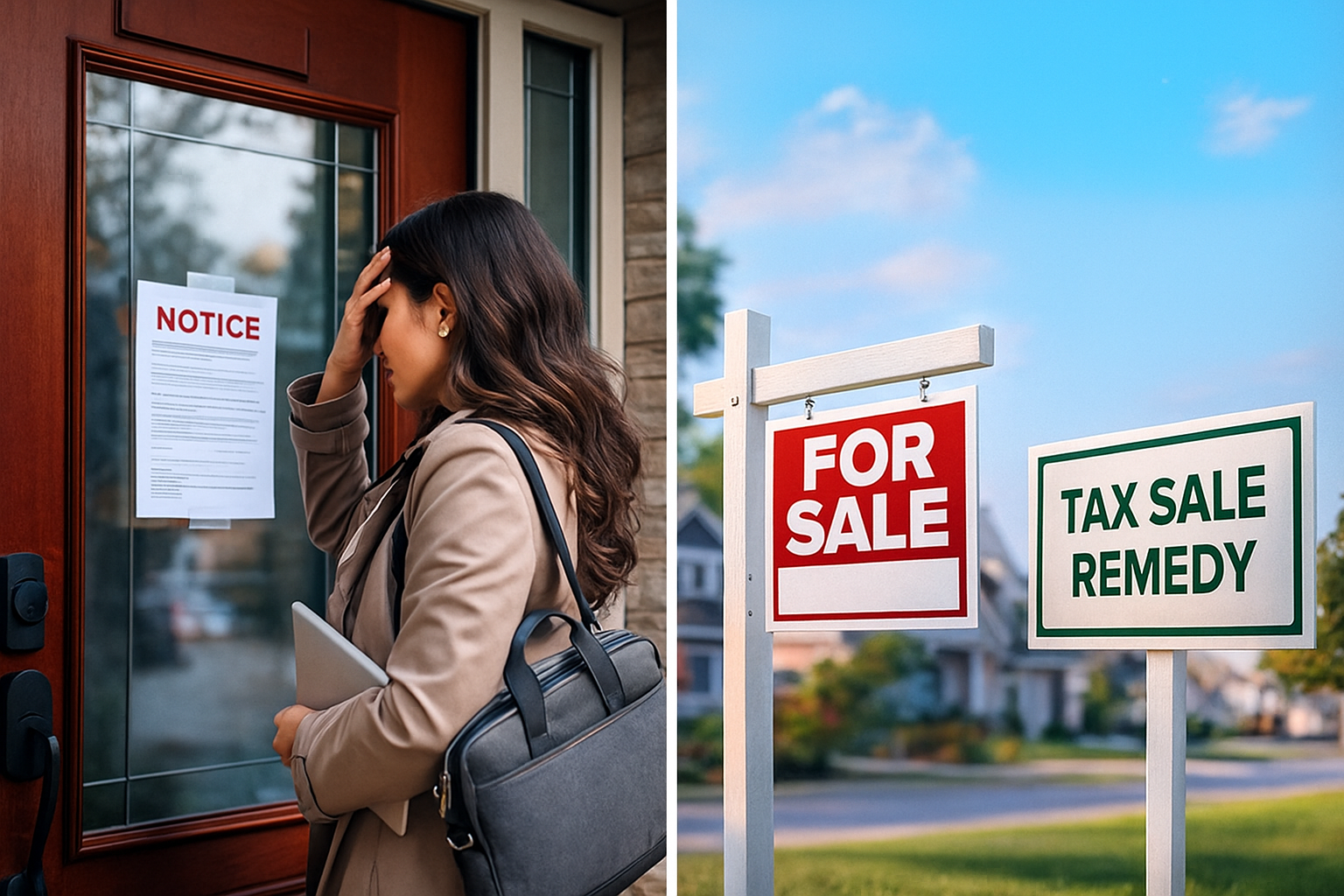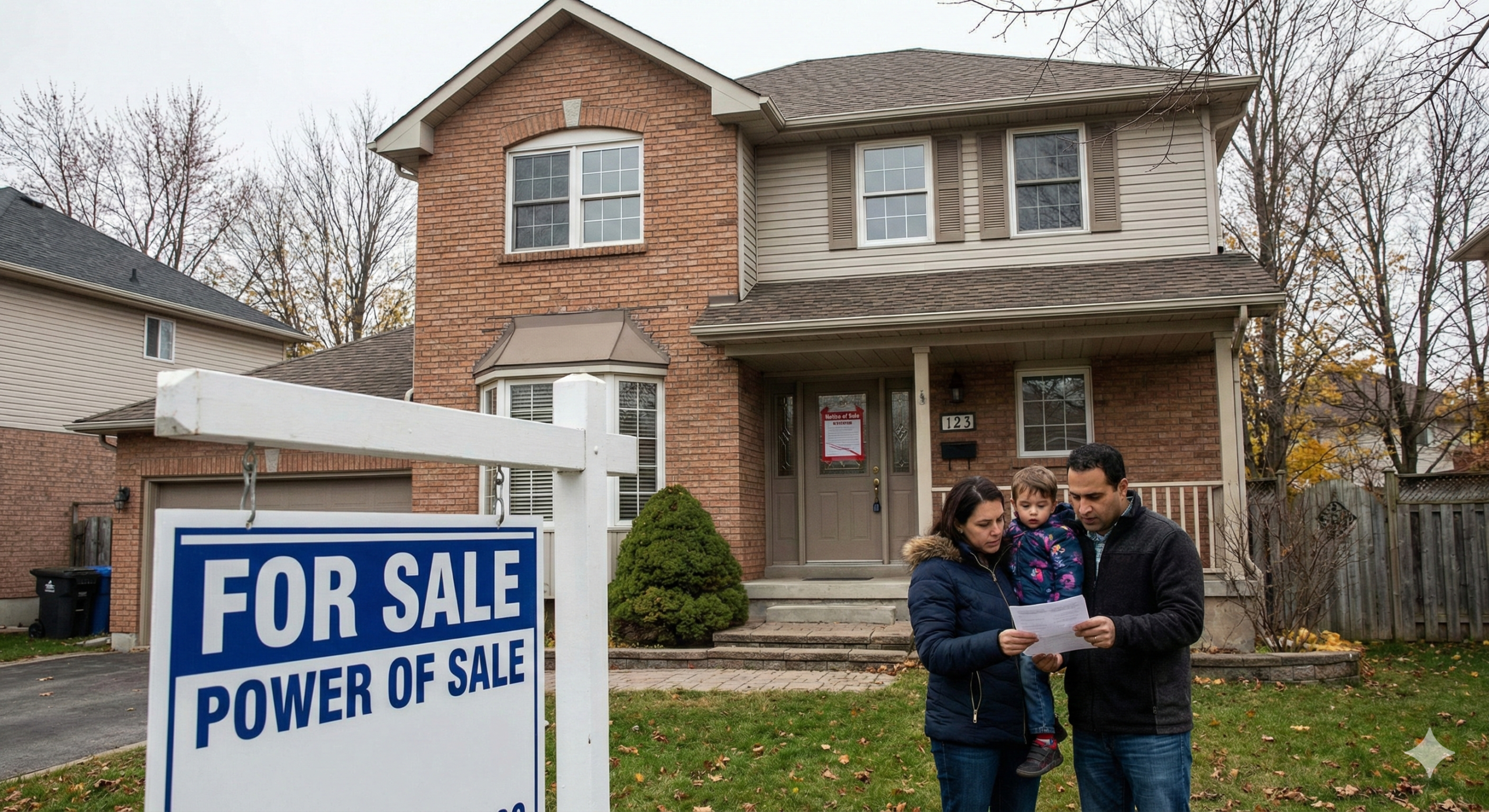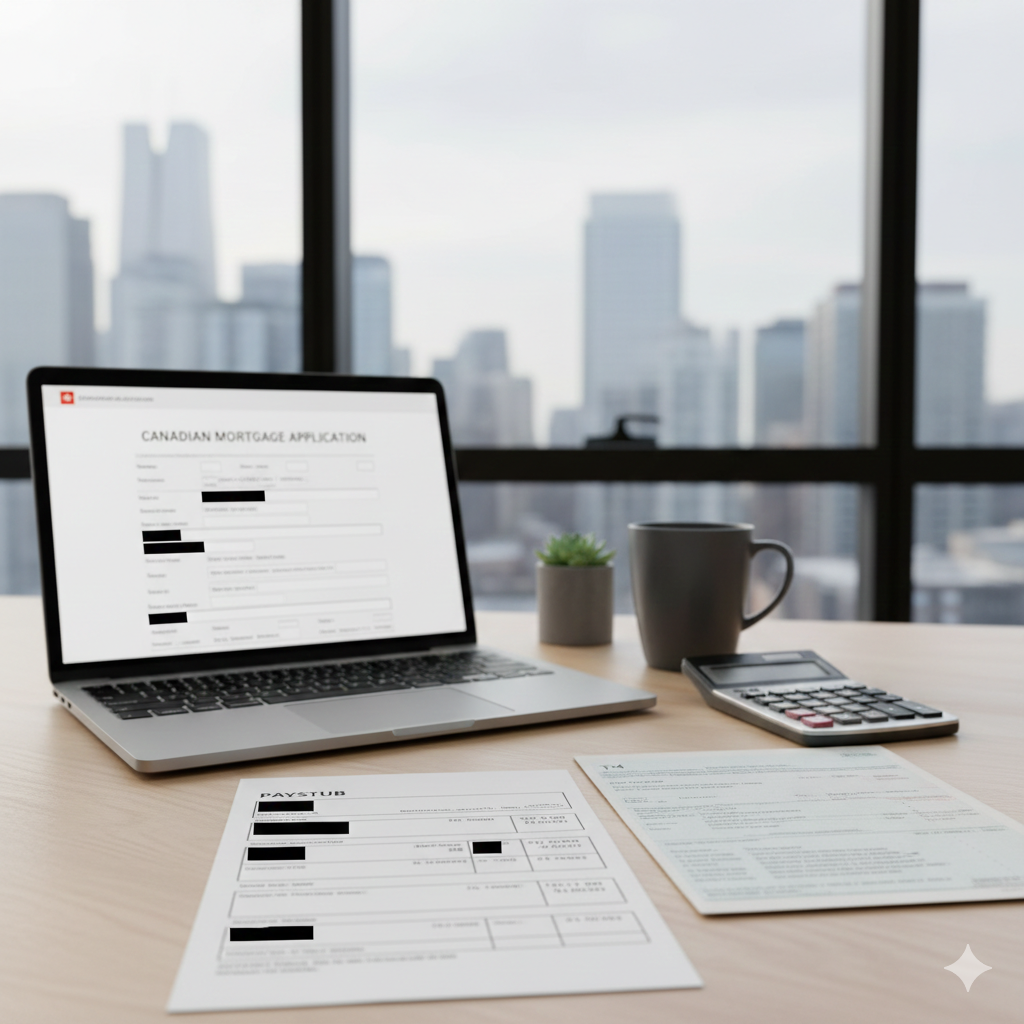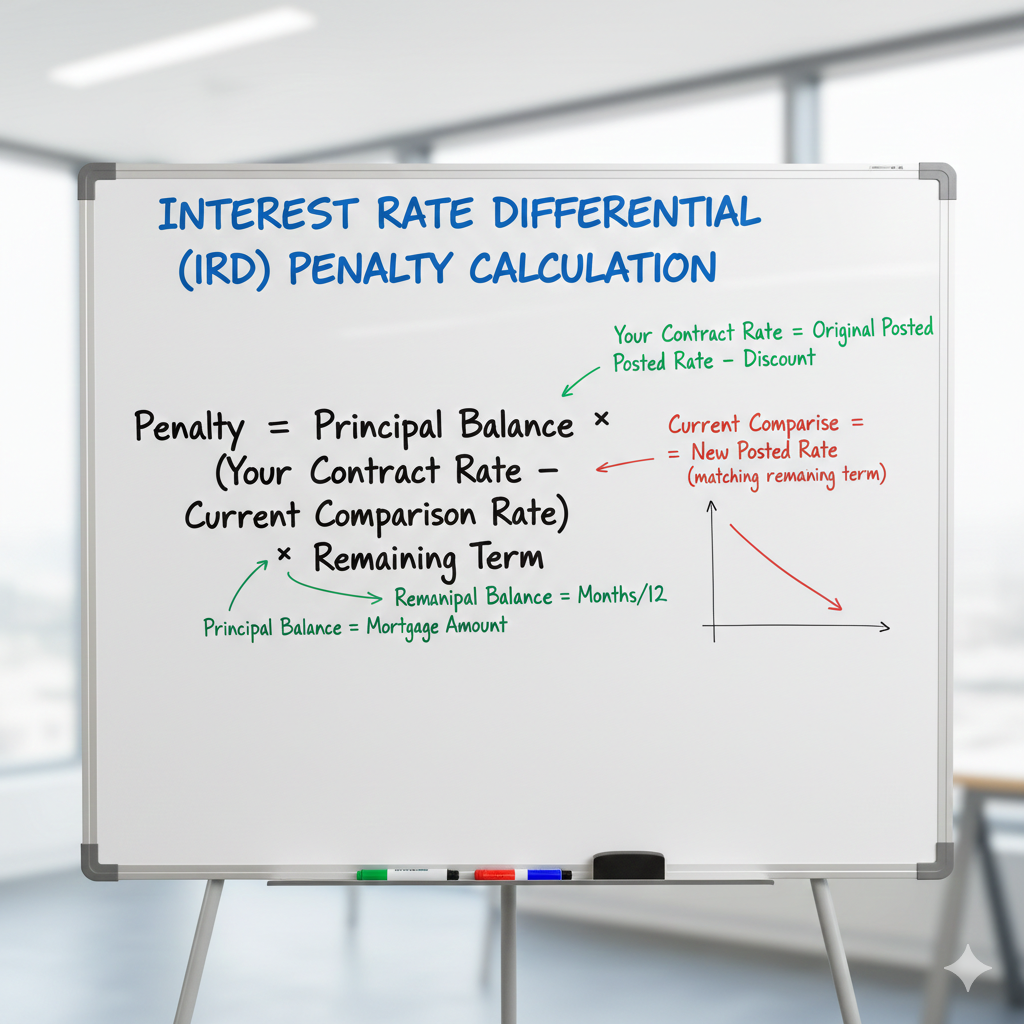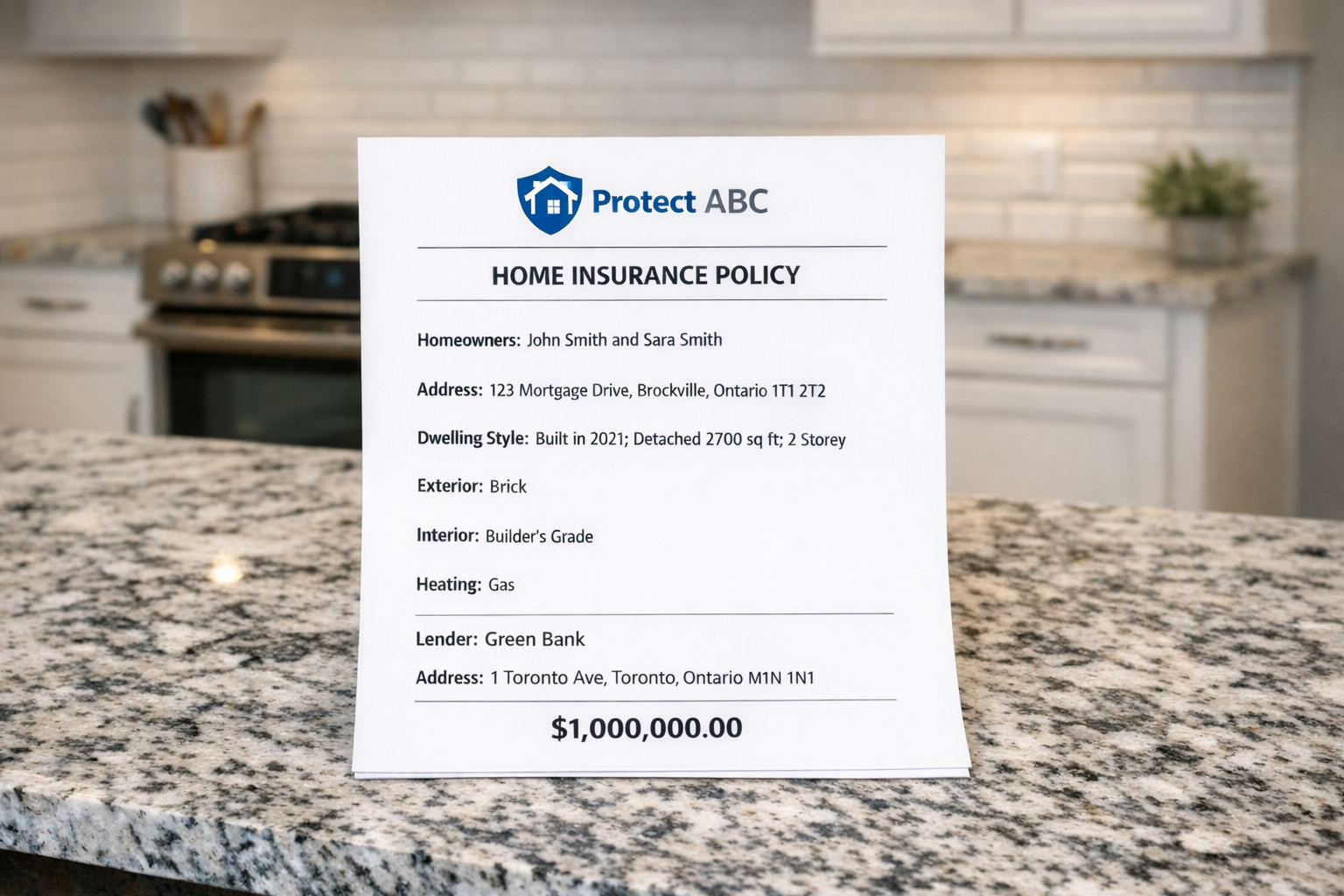Homeowners facing BC property tax arrears often feel pressure quickly because penalties, accrued interest, and municipal timelines escalate faster than expected. In British Columbia, unpaid property taxes can lead to a tax lien, legal notices, and eventually a tax sale if not resolved. The good news is that homeowners have several practical solutions, such as a second mortgage, a home equity loan, or a home equity line of credit, that can stop the process before it reaches a critical stage.
Many British Columbia municipalities move to tax sale eligibility after one year of delinquency, which makes prompt action essential. Equity-based solutions can help homeowners with bad credit, limited income, or unresolved unsecured loans regain stability and avoid losing their home.
This guide explains how BC property tax arrears work, the difference between property tax arrears and the vacant tax, and the most effective ways to clear arrears using your property’s equity.
Table of Contents
ToggleUnderstanding BC Property Tax Arrears
What Counts as BC Property Tax Arrears?
BC property tax arrears occur when a homeowner fails to pay municipal property taxes by the due date. Unlike other provinces, British Columbia follows a structured delinquency system. A payment becomes outstanding immediately after the due date, but it becomes “arrears” on December 31 of that same year if unpaid.
Once unpaid taxes enter arrears status:
-
Penalties are added.
-
Monthly accrued interest begins.
-
A tax lien may be registered against the property.
Key takeaway: Arrears don’t disappear, they accumulate and can threaten homeownership if not addressed early.
How Fast Penalties Grow in British Columbia
BC municipalities add interest and penalties at rates specific to their jurisdiction.
While amounts vary, many homeowners see:
-
A 5–10% penalty shortly after the due date
-
Additional interest applied monthly
-
Higher costs the longer arrears remain outstanding
Common mistake: Homeowners often think they can delay payment until they “catch up,” not realizing how much accrued interest compounds each month. This dramatically increases the cost of clearing BC property tax arrears.
How Many Homeowners Fall Behind?
Across British Columbia, arrears increase during periods of inflation, reduced employment, or rising interest rates. Municipal data in large cities such as Vancouver, Surrey, and Kelowna consistently show thousands of homes entering arrears each year.
Important to note: Falling behind happens more than people think. Many homeowners facing BC property tax arrears don’t have bad financial habits, but rather unexpected life events: job loss, medical challenges, renovations, or high unsecured loans.
What Happens If BC Property Tax Arrears Go Unpaid
Timeline Before a Tax Sale in BC
British Columbia follows a strict two-year timeline:
YEAR 1 – Taxes Become Arrears
-
Unpaid taxes by December 31 become BC property tax arrears.
-
Interest and penalties accumulate.
YEAR 2 – Taxes Become Delinquent
-
If unpaid through the next year, they become delinquent taxes.
-
Property becomes eligible for tax sale near the end of Year 2.
Tax Sale Eligibility:
Most BC municipalities list properties for tax sale on the last Monday of September each year.
What Is a Tax Lien in BC?
A tax lien attaches automatically once taxes become delinquent.
This lien takes priority over:
-
Mortgages
-
Second mortgages
-
Secured lines of credit
-
Other secured debt instruments
Important to note: Traditional mortgage lenders generally will not refinance a property with outstanding BC property tax arrears unless the arrears are cleared or paid through the new loan they offer or alternate methods.
What Is a Tax Sale?
A tax sale is a public auction where the municipality sells the property to recover unpaid taxes.
Process overview:
-
Property is offered for sale to bidders.
-
Winning bidder pays the delinquent amount plus fees.
-
Homeowner enters a 1-year redemption period to repay and reclaim the property.
-
If unpaid, the new buyer receives title.
Key takeaway: Letting BC property tax arrears reach tax sale stage creates significant risk. Equity may be lost. Lenders become hesitant. Options shrink quickly.
Vacant Tax vs BC Property Tax Arrears
What Is the Vacant Tax?
The vacant tax, also known as the Empty Homes Tax in Vancouver or the Speculation and Vacancy Tax provincially, is a separate levy charged on residential properties that remain unoccupied beyond specific thresholds.
This is not a debt collection or arrears process.
It is a compliance tax designed to increase housing availability.
How the Vacant Tax Differs from BC Property Tax Arrears
These two obligations are often confused.
Here’s the difference:
| Category | Vacant Tax | BC Property Tax Arrears |
|---|---|---|
| Purpose | Encourage occupancy | Municipal revenue |
| Enforcement | Fines and audits | Tax lien + tax sale |
| Risk of losing home | No | Yes |
Important to note: You cannot lose your home due to unpaid vacant tax alone. However, unpaid vacant tax may become a collectible debt that still harms credit or disrupts refinancing.
Common Myth
“My home will be sold if I owe vacant tax.”
This is incorrect. Only BC property tax arrears can lead to a tax sale.

BC Property Tax Arrears Solutions
Resolving BC property tax arrears before they reach the tax sale stage is crucial. Homeowners have several effective financial tools available, especially when the property has usable equity.
Second Mortgage
A second mortgage is one of the most common and fast-moving solutions for BC property tax arrears.
Advantages:
-
Accessible for homeowners with bruised or bad credit
-
Funds can be used to pay off arrears, accrued interest, and other debts
-
Approval relies heavily on equity, not income
This solution is frequently used near tax sale deadlines because private lenders can fund quickly.
Key takeaway: A second mortgage is often the best option when urgency is high.
Home Equity Loan
A home equity loan provides a lump-sum amount secured against your home. Homeowners use this option to:
-
Clear past due property tax arrears
-
Pay off unsecured loans
-
Reduce monthly debt obligations
-
Stop interest and penalties from escalating
Important to note: Many homeowners choose a home equity loan when they need predictable payments rather than revolving credit.
Home Equity Line of Credit (HELOC)
A home equity line of credit offers flexible borrowing for homeowners who:
-
Have strong income
-
Have decent credit
-
Prefer a revolving credit option
HELOCs typically have lower interest rates, but qualifying is more challenging.
Common mistake: Homeowners assume a HELOC is always available, but big banks rarely approve a HELOC when BC property tax arrears are present.
Equity-Based Private Mortgage Solutions
Equity-based lenders focus on loan-to-value (LTV) rather than income or credit score.
These lenders help when:
-
Credit scores are too low for banks
-
Income is inconsistent
-
Arrears have already created a tax lien
-
Deadlines are tight
These loans are short-term tools to stabilize a homeowner’s situation.
Why Unsecured Loans Rarely Work
When arrears are active, municipalities require immediate payment of:
-
Taxes
-
Penalties
-
Accrued interest
The amount is often too large for a typical unsecured loan.
Additionally:
-
Unsecured loans have higher interest rates
-
Approval depends heavily on income and credit score(s)
-
Lenders avoid high-risk arrears scenarios
Using home equity is usually more realistic, slightly easier and efficient.
When Refinancing Makes Sense
Refinancing into a new first mortgage is ideal when:
-
Equity is strong
-
Income is verifiable
-
Credit is fair to good
-
Arrears have not advanced too far
A refinance can consolidate:
-
BC property tax arrears
-
Credit cards
-
Lines of credit
-
Renovation loans
-
Other unsecured loans
The benefit is one single payment at a lower overall cost.
Typical Scenarios
Lower Mainland Homeowner Avoids Tax Sale
A homeowner in Surrey accumulated BC property tax arrears over two years due to job loss. A tax lien had been filed. Their bank declined refinancing due to credit challenges. A private second mortgage was arranged using home equity to pay the arrears, clear the lien, and avoid tax sale eligibility.
Retired Vancouver Homeowner With Bad Credit
A retired homeowner on fixed pension income fell behind on taxes. Accrued interest increased the total balance. A home equity loan was used to clear arrears and consolidate unsecured loans, reducing monthly payments and providing breathing room. This also gave the homeowner an opportunity to consider the idea of a reverse mortgage in the future to help avoid future tax arrears and improve monthly cash flow.
Homeowner With Both Vacant Tax and Arrears
A property owner with an Empty Homes Tax issue also had unpaid property taxes. The vacant tax was handled separately through government channels, while the BC property tax arrears were cleared through a second mortgage. This kept the property off the tax sale list.
Checklist: What To Do When You Have BC Property Tax Arrears
Step-by-step:
-
Contact your municipality for a current arrears balance.
-
Request a breakdown of penalties and accrued interest.
-
Check how long until taxes become “delinquent.”
-
Review available home equity through your mortgage statement.
-
Consider a second mortgage or home equity loan if deadlines are close.
-
Contact a mortgage professional familiar with BC tax sale timelines.
Home Equity Solutions
| Feature | Second Mortgage | Home Equity Loan | HELOC |
|---|---|---|---|
| Speed | Fast | Moderate | Slow (bank approval) |
| Credit Needed | Flexible | Moderate | Moderate |
| Best For | Urgent arrears | Consolidation | Long-term planning |
| Works With Tax Lien? | Yes | Yes | Yes (alternative lenders) |
| Lump Sum? | Yes | Yes | No (revolving credit) |
FAQ Section
Q1: How long before a tax sale happens in BC?
A: Taxes become BC property tax arrears after December 31. If still unpaid the following year, they become “delinquent.” Properties are eligible for tax sale near the end of Year 2, usually the last Monday of September. Acting early prevents tax sale risk.
Q2: Can I get financing if I have BC property tax arrears and bad credit?
A: Yes. Second mortgages and equity-based private lenders frequently assist homeowners with BC property tax arrears, even with low credit scores. Equity matters more than income or credit history.
Q3: Will a tax lien stop me from refinancing?
A: A tax lien will usually stop traditional refinancing. However, private lenders can provide a second mortgage or home equity loan to clear arrears and remove the lien. Once cleared, refinancing becomes possible.
Q4: Is the vacant tax the same as bc property tax arrears?
A: No. The vacant tax is a compliance-based penalty for unused properties, not a municipal arrears issue. Only BC property tax arrears can lead to a tax sale.
Q5: Can a second mortgage stop a tax sale?
A: Yes. A second mortgage can provide the funds needed to clear arrears, remove the tax lien, and stop the tax sale process before title is transferred.
Final Thoughts & Next Steps
Dealing with BC property tax arrears can feel overwhelming, especially when deadlines and penalties continue to grow. The most important step is acting early, before arrears shift into delinquency and before the municipality begins tax sale proceedings. Homeowners in British Columbia have multiple equity-based solutions available, including second mortgages, home equity loans, and reverse mortgage financing options that don’t require perfect credit or strong income.
Planning matters. Choosing the right solution depends on your long-term goals, whether it’s lowering monthly payments, consolidating unsecured loans, or preparing to refinance with a traditional lender once your situation stabilizes.
If your arrears have already escalated, help is still available. Many British Columbia homeowners resolve their BC property tax arrears successfully by accessing equity and creating a practical financial strategy going forward. A mortgage professional experienced in BC tax rules can help you understand timelines, municipal procedures, and the most appropriate financing options.
- Can a Mortgage Company Evict You in Ontario? (2026 Power of Sale Guide) - February 23, 2026
- Crucial Ways to Survive the Redemption Period During Foreclosure: A Guide - February 21, 2026
- Painful Realities of the Interest Rate Differential Penalty You Must Know - February 15, 2026
